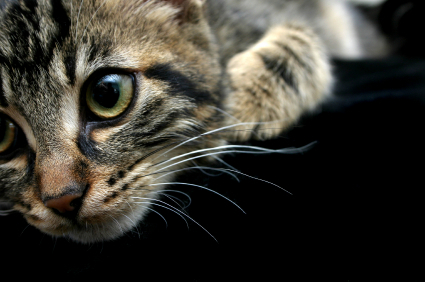Bringing Home Baby
 A little bit of planning can make a big difference when bringing home your new baby to live with your existing four-legged family members. At the very least our pets thrive on routine and a new baby shakes a routine to its core.
A little bit of planning can make a big difference when bringing home your new baby to live with your existing four-legged family members. At the very least our pets thrive on routine and a new baby shakes a routine to its core.
Here are some tips to help ease the adjustment for everyone in the family.
Paint the Picture
- Begin acclimating your pets to the baby well in advance to your new arrival. Develop a picture in your mind of your life with your new baby and your pets. Ask yourself:
- Will I allow my pets into the nursery? Are there beds, toy boxes, litter boxes, etc in the future nursery that will have to be relocated before the baby arrives?
- Do I let my pets on the couch when I am feeding, changing, or holding my baby?
- If I go for walks with the baby stroller do I want my dogs to walk with us?
- If the dog barks daily at the mailman will this have a potential to ruin a nap?
- Do I want my pet investigating the dirty diaper bin?
- Don’t leave out any details!
- Now that you have your picture in your mind (or better yet on paper) start training now! Being a new parent is stressful enough without having to quiet a fussy baby and keep your pets out of the dirty diaper bin all at the same time!
Preparing Your Pets
- Some pets can find a wailing baby terrifying. While you cannot control the volume of your baby, you can control the volume of a recording:
- Download an audio recording or purchase a CD (we like Sounds Good CD Babies by Legacy Canine Behavior & Training).
- Begin desensitizing your pets during mealtimes by playing it at a barely audible level in a room other than where your pet eats.
- Gradually increase the volume over time but not so fast that your pet notices.
- Move the food dish closer to the speakers (or speakers closer to the food dish).
-
- You can also play their favorite game or engage in their favorite activity while the baby recording is playing. Soon the positive association of your pets’ favorite activities will transfer to the crying.
- Your pets were used to being your only child before the baby arrived.
- The new baby will demand a lot of your time, so gradually accustom your pets to spending less time with you.
- If your pet is particularly attached to mother-to-be, another person in the household should develop a closer relationship with the pet to help mom out.
Dress Rehearsals
- Put on your acting face, it’s time for dress rehearsals! Dress up a baby doll just as you would your new baby.
- Have everyone in the family “baby talk” to the doll. If you have already named your baby go ahead and use their name when talking to the doll.
- Do everything with the doll that you will do with your baby; carry it, rock it, swaddle it, and sit with it.
- Use baby oil, powder, etc. on yourself and the doll before engaging in your pets’ favorite activity. This will get your pet used to some of the new smells.
- Take the doll in the stroller when you walk your dog.
- If your mental picture includes having your dog sit or lay down while you take care of the baby in the stroller, teach them on your dress rehearsals. If your dog pulls, take a class now!
- This is a great opportunity to teach pets how to behave around baby without the baby there. This will take a lot of stress off everyone in the family!
The Nursery
- Preparing the nursery is fun and exciting for everyone including our pets! Pets are naturally curious and may wish to investigate the new nursery.
- If you choose to keep your nursery pet free, allowing the pet to see what is going on will decrease feeling of isolation (baby gates and screen doors are good options).
- When relocating your pets’ belongings out of the future nursery, do so gradually.
- When moving litter boxes for your cats move it gradually over time to its new location. Moving it a little bit each day will help prevent cats from returning to the original location of the litter box to do their business.
- Find a pet safe location to throw away dirty diapers!
Home Sweet Home
- Once your baby arrives, have someone bring home a blanket with your baby’s smell on it. Let your pets investigate and place the blanket near their food bowls as they eat their meals.
- If your pets get upset at baby fussing, toss some treats into the air. The trick is to make it seem as if the baby is presenting the treats!
- Never force a pet to interact with an infant or toddler. This can increase their stress and fear.
- Don’t forget to try and spend a little one-on-one time with your pets.
- Other considerations:
- Parasite control is always important, but even more so with an infant in the house!
- Get your pet used to nail trims to avoid unintentional scratches.
- The Number One Rule To Remember – No matter how trustworthy the pet seems, a baby (or toddler) should NEVER be left with any pet without adult supervision!
Oakland Veterinary Referral Services
Behavior department
1400 S. Telegraph, Bloomfield Hills, MI
Phone 248-334-6877 Fax 248-334-3693
behavior@ovrs.com
Reprinted with permission, authored by Cathryn Fields. Not to be reprinted or distributed without permission.


